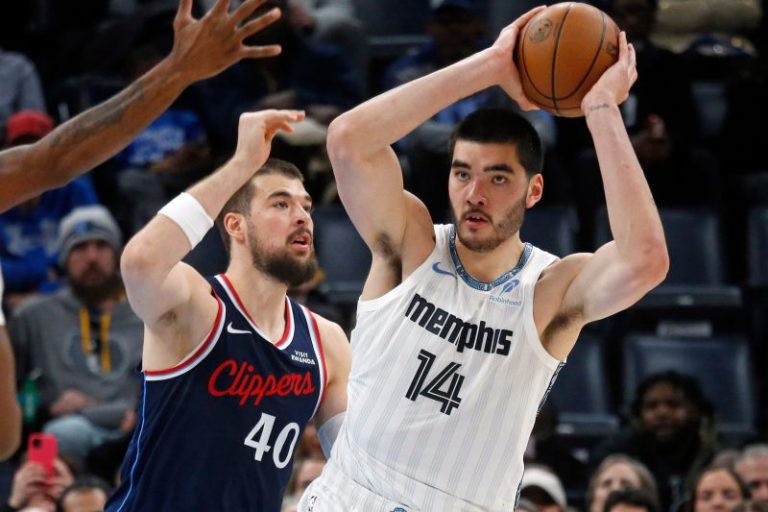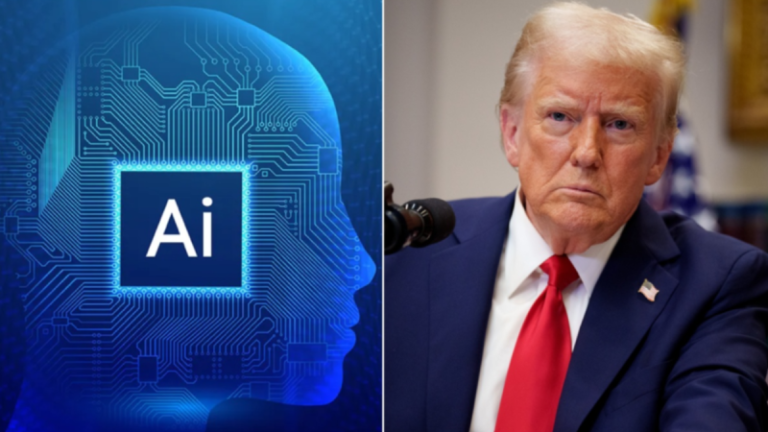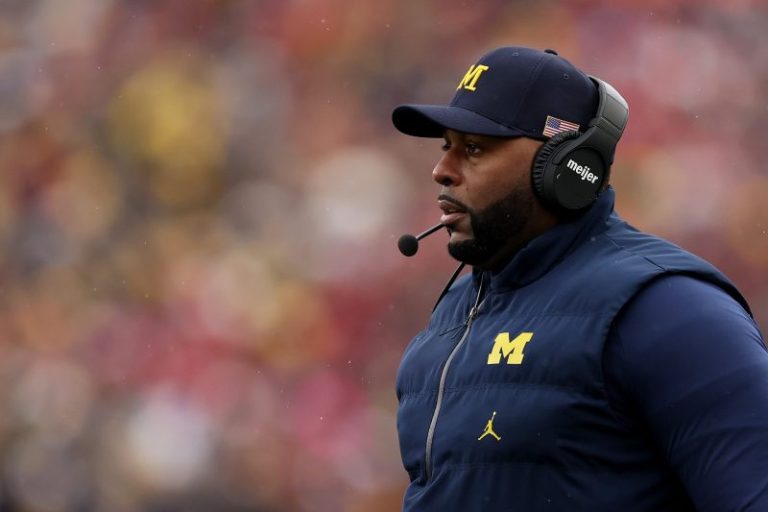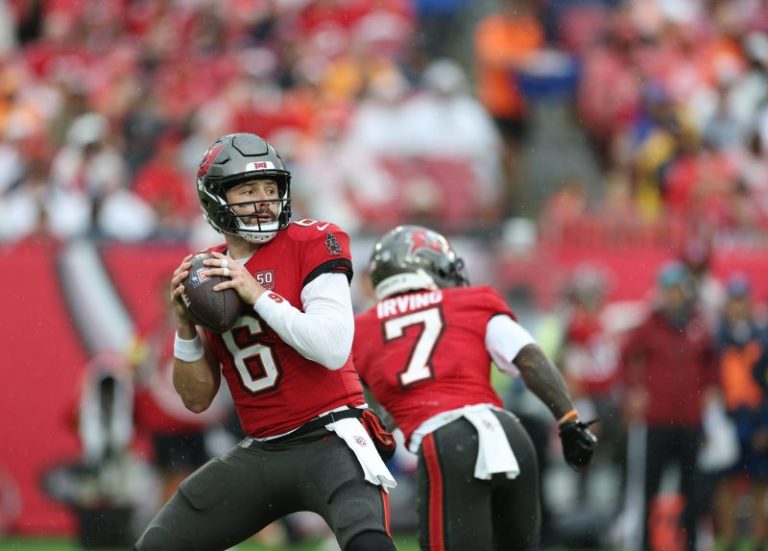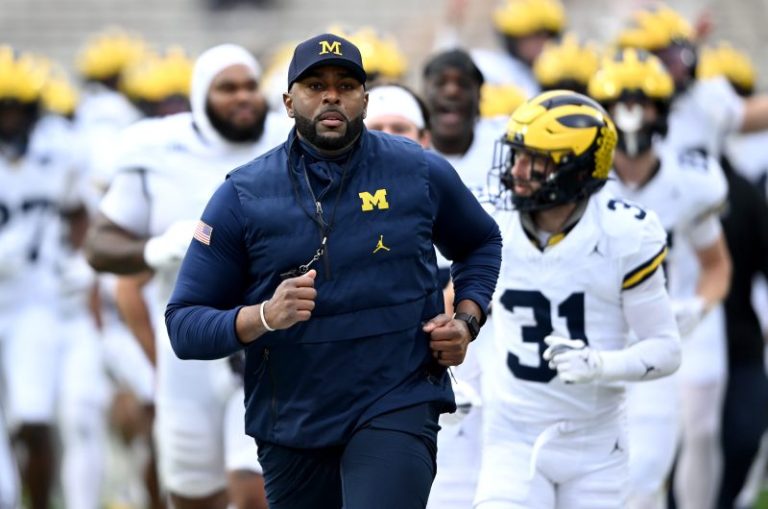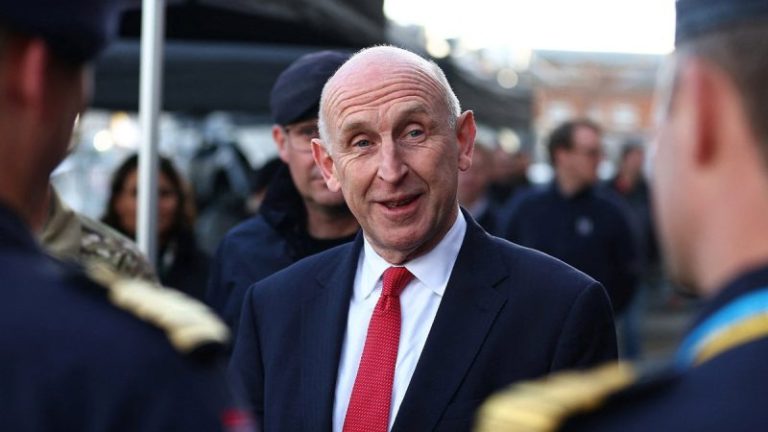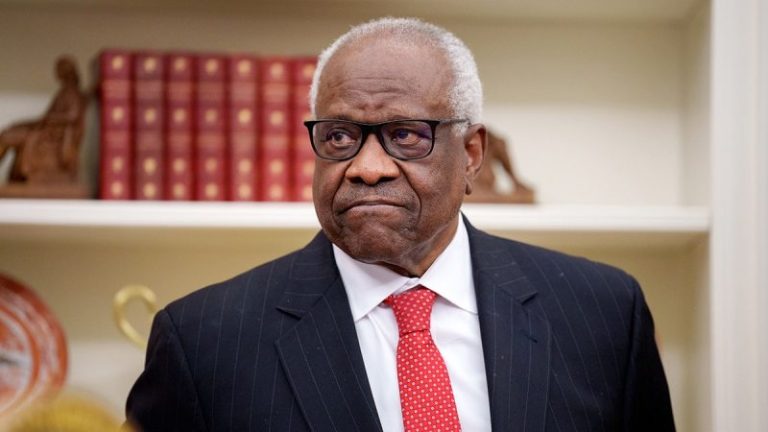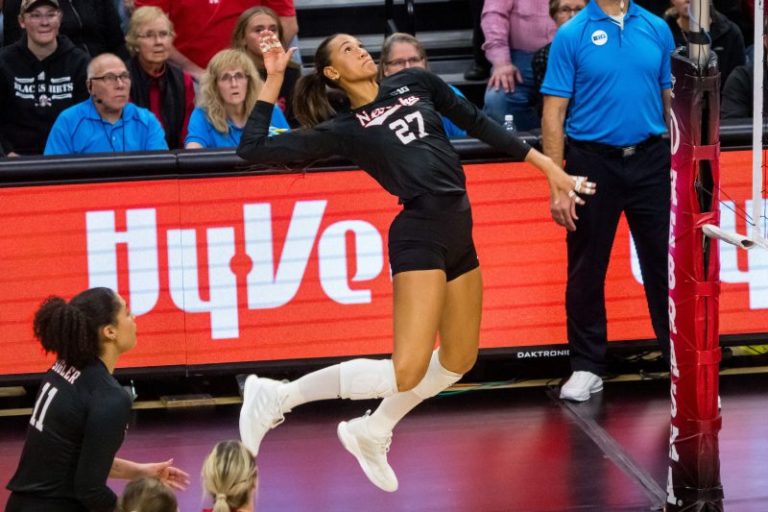The three other No. 1 seeds in the tournament — Kentucky, Texas and Pittsburgh — all advanced to the Sweet 16. The Wildcats will face a red-hot Cal Poly team that upset No. 5 BYU and No. 4 USC in consecutive five-set thrillers to advance to their seventh Sweet 16 appearance in program history.
Here’s everything you need to know about the Round of 16 at the 2025 NCAA volleyball tournament:
Set 3: Creighton 25, Arizona State 13
It was all Creighton in the third set as they hit .600 in the frame. The Bluejays built a double-digit lead behind masterful work from Kiara Reinhardt (12 total kills and one block) and Jaya Johnson (eight total kills, two blocks). Creighton slammed the door with a service ace to end the set.
Set 2: Arizona State 25, Creighton 19
Arizona State fought back for a second set victory. Noemie Glover has 11 kills to lead the Sun Devils, who are looking to avoid an upset. Arizona State had 16 kills with 0.368 hitting percentage in the set.
Set 1: Creighton 26, Arizona State 24
Creighton stormed back, going up 20-18, but Arizona State was ready. Back and forth they went until Creighton team won the first set 26-24.
Arizona State is the first to 15 in Set 1 vs. Creighton
After some back and forth, the Sun Devils created some separation to be the first team to reach 15 during the first set. Arizona went on a 4-0 run, powered by two aces from Brynn Covell, her 27th and 28th aces of the season.
Creighton vs. Arizona State is underway
The Bluejays and Sun Devils are live in set one of the first match during the Sweet 16.
Where is NCAA women’s volleyball Sweet 16?
The 2025 NCAA women’s volleyball Final Four will be held at the T-Mobile Center in Kansas City, Missouri. It’s the third time since 2010 that the venue has hosted the volleyball national championship.
When is NCAA women’s volleyball Sweet 16?
Date: Dec. 11 and 13 or Dec. 12 and 14
Time: Four matches each day, beginning at 1 p.m. ET Thursday and noon ET Friday. Match-by-match times below.
How to watch NCAA volleyball tournament
Streaming: ESPN+ ∣ Fubo (free trial)
The 2025 NCAA women’s volleyball tournament will air across the ESPN and ABC family of networks. Games can be streamed ESPN+, ESPN’s subscription streaming service, and Fubo, which offers a free trial to potential subscribers.
NCAA volleyball Sweet 16 schedule: Times, TV
All times Eastern
Thursday, Dec. 11
No. 2 Arizona State vs. No. 3 Creighton, 1 p.m. | ESPN2
No. 1 Kentucky vs. Cal Poly, 3:30 p.m. | ESPN2
No. 4 Minnesota vs. No. 1 Pittsburgh, 7 p.m. | ESPN2
No. 2 SMU vs. No. 3 Purdue, 9:30 p.m. | ESPN2
Friday, Dec. 12
No. 1 Texas vs. No. 4 Indiana, 12 p.m. | ESPN
No. 3 Wisconsin vs. No. 2 Stanford, 2:30 p.m. | ESPN
No. 3 Texas A&M vs. No. 2 Louisville, 7 p.m. | ESPN2
No. 1 Nebraska vs. No. 4 Kansas, 9:30 p.m. | ESPN2
NCAA volleyball second-round results
Lexington bracket
No. 1 Kentucky 3, No. 8 UCLA 1 (30-28, 25-16, 28-30, 25-17)
No. 3 Creighton 3, No. 6 Northern Iowa 1 (25-18, 23-25, 25-22, 25-21)
No. 2 Arizona State 3, Utah State 1 (25-15, 25-18, 22-25, 25-15)
Cal Poly 3, No. 4 USC 2 (25-19, 25-20, 20-25, 14-25, 15-7)
Austin bracket
No. 4 Indiana 3, No. 5 Colorado 0 (25-20, 25-17, 25-23)
No. 3 Wisconsin 3, North Carolina 0 (25-14, 25-21, 27-25)
No. 1 Texas 1, No. 8 Penn State 0 (25-16, 25-9, 25-19)
No. 2 Stanford 3, Arizona 1 (25-16, 25-27, 25-17, 25-20)
Pittsburgh bracket
No. 3 Purdue 3, No. 6 Baylor 1 (25-16, 25-19, 23-25, 25-20)
No. 1 Pittsburgh 3, Michigan 0 (25-23, 25-23, 25-18)
No. 2 SMU 3, Florida 0 (25-11, 25-21, 26-24)
No. 4 Minnesota 3, No. 5 Iowa State 0 (25-22, 25-21, 25-14)
Lincoln bracket
No. 4 Kansas 3, No. 5 Miami 1 (25-17, 25-22, 22-25, 27-25)
No. 2 Louisville 3, Marquette 2 (21-25, 25-11, 23-25, 25-19, 15-12)
No. 1 Nebraska 3, Kansas State 0 (25-17, 25-21, 25-16)
No. 3 Texas A&M 3, No. 6 TCU 1 (23-25, 25-23, 25-22, 29-27)
NCAA volleyball first-round results
Lexington bracket
No. 1 Kentucky 3, Wofford 0 (25-11, 25-19, 25-12)
No. 8 UCLA 3, Georgia Tech 2 (24-26, 25-19, 25-23, 25-18, 15-10)
Cal Poly 3, No. 5 BYU 2 (25-19, 17-25, 20-25, 25-20, 15-10)
No. 4 USC 3, Princeton 0, (25-19, 25-12, 25-13)
No. 3 Creighton 3, Northern Colorado 2 (12-25, 25-23,25-23,17-25, 8-15)
No. 6 Northern Iowa 3, Utah 2 (15-25, 21-25, 26-24, 25-20, 15-10)
Utah State 3, No. 7 Tennessee 2 (25-19, 25-15, 19-25, 25-18, 15-11)
No. 2 Arizona State 3, Coppin State 0 (25-11, 25-14, 25-12)
Austin bracket
No. 1 Texas 3, Florida A&M 0 (25-11, 25- 8, 25-14)
No. 8 Penn State 3, South Florida 1 (25-23, 12-25, 25-21, 25-19)
No. 5 Colorado 3, American 0 (25-16, 25-19, 25-16)
No. 4 Indiana 3, Toledo 0 (25-18, 25-15, 25-17)
No. 3 Wisconsin 3, Eastern Illinois 0 (25-11, 25-6, 25-19)
North Carolina 3, No. 6 UTEP 1 (24-26, 25-11, 25-18, 25-21)
Arizona 3, No. 7 South Dakota State 1 (25-21, 22-25, 25-15, 25-15)
No. 2 Stanford 3, Utah Valley 1 (21-25, 25-21, 25-13, 25-14)
Pittsburgh bracket
No. 1 Pitt 3, UMBC 0 (25-10, 25-17, 25-13)
Michigan 3, No. 8 Xavier 0 (25-19, 25-15, 25-23)
No. 5 Iowa State 3, St. Thomas-Minnesota 2 (21-25, 25-13, 25-16, 21-25, 15-8)
No. 4 Minnesota 3, Fairfield 0 (25-12, 25-7, 25-13)
No. 3 Purdue 3, Wright State 0 (25-13, 25-21, 25-19)
No. 6 Baylor 3, Arkansas State 2 (23-25, 25-20, 30-28, 23-25, 15-10)
Florida 3, No. 7 Rice 0 (27-25, 25-23, 25-19)
No. 2 SMU 3, Central Arkansas 0 (25-13, 25-13, 25-13)
Lincoln bracket
No. 1 Nebraska 3, Long Island 0 (25-11, 25-15, 25-17)
Kansas State 3, San Diego 2 (21-25, 25-17, 26-28, 25-22, 15-12)
No. 5 Miami 3, Tulsa 1 (25-22, 13-25, 25-22, 25-20)
No. 4 Kansas 3, High Point 0 (25-20, 25-15, 25-18)
No. 3 Texas A&M 3, Campbell 0 (25-20, 25-10, 25-13)
No. 6 TCU 3, Stephen F. Austin 0 (25-8, 26-24, 25-20)
Marquette 3, Western Kentucky 0 (25-22, 25-21, 25-16)
No. 2 Louisville 3, Loyola (Illinois) 0 (25-17, 25-9, 25-12)
When is the NCAA volleyball Final Four in 2025?
Dates: Thursday, Dec. 18 and Sunday, Dec. 21
The two semifinal matches in the Final Four of the 2025 NCAA volleyball tournament will take place on Thursday, Dec. 18 and will be broadcast on ESPN. The national championship game is Sunday, Dec. 21 on ABC.
NCAA volleyball tournament champions
Penn State is the reigning NCAA volleyball champion, having defeated Louisville in four sets last year in the national title game. It was the Nittany Lions’ eighth volleyball championship since 1999.
Here’s a look at the past 10 NCAA volleyball champions:
2024: Penn State
2023: Texas
2022: Texas
2021: Wisconsin
2020: Kentucky
2019: Stanford
2018: Stanford
2017: Nebraska
2016: Stanford
2015: Nebraska
The USA TODAY app gets you to the heart of the news — fast. Download for award-winning coverage, crosswords, audio storytelling, the eNewspaper and more.
This post appeared first on USA TODAY

